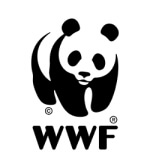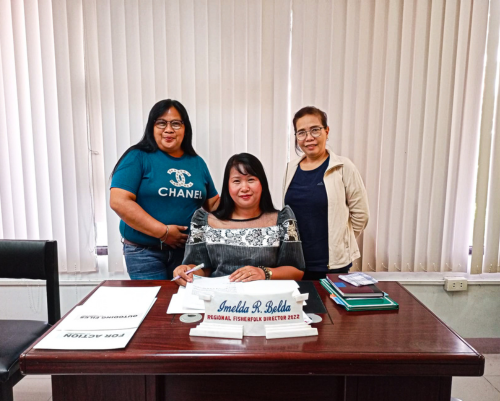The Sustainable Tuna Program (STP) has been working on promoting sustainable fisheries among the fishing communities of Occidental Mindoro and Bicol for more than a decade. In its years of work, it has facilitated numerous programs and activities that have contributed to fisher empowerment. These efforts include the establishment of Group Savings and Loans Committees (GSLCs), the introduction of alternative livelihood programs through Project Buhay, and the facilitation of various dialogues through Fisheries and Aquatic Resource Management Council (FARMC) meetings.
Although these efforts may conclude in December, the mindset and empowerment instilled among fishers are lasting. Evidence of this enduring impact is seen in the emergence of leadership within the fishing communities that the Sustainable Tuna Program has partnered with. Learn more about the experiences and successes of Gene, Bernard, Suzette, Imelda, and Conchita below.
Atenogenes Reaso (Bicol)
Atenogenes, known as “Gene” to his constituents, has been in the fishing industry for more than 12 years. Now 74 year-old, the decade-long fisherfolk recalls his old ways before the Sustainable Tuna Program intervention in 2011, “At first, it felt like there was no direction. We would just go out to sea and catch fish. We didn’t care if we were harming the ocean before WWF came”. He recalled that things started to change when the fishers were later on organized by STP. “We started learning how to protect our ocean,” he shares. “Now, when I’m at sea, I even collect floating wastes myself and throw them properly when I reach the shore”.
Along the course of the program, Gene emerged as a leader among the fishing community. A testament to this is his ongoing reign as Chairperson of Albay’s Municipality Agricultural and Fisheries Council; and as President of the Malilipot Tuna Fisher’s Association, a position which he has rendered service to since 2013. “They (WWF-Philippines) taught me how to take care of the ocean and make fisheries sustainable, I realize that some of our past practices were harmful. Now, with our efforts more organized, we are addressing the tuna fishing situation effectively,” he shares. Even after the program ends, Gene hopes that his constituents will continue to embody comradeship. He believes that through this, they can better forward their association’s interests and receive better support from the local government.
Bernard Mayo (Occidental Mindoro)
Prior to engaging with STP, Bernard was an admittedly timid person. “I used to be shy. I didn’t know how to speak in front of people. I wasn’t comfortable with it even though I’m often around crowds,” he shared. Now, after more than a decade of engaging with WWF-Philippines, local government leaders, and fellow fisher-leaders, he is a completely different man. In fact, he holds Chairpersonship for both the Integrated Fisheries and Aquatic Resource Management Council (IFARMC) and the Philippine Tuna Handline Partnership (PTHP) where he consistently speaks publicly and addresses his fellow fishers’ concerns. Aside from this, Bernard is also elected as a Vice Chairperson in the Mindoro Tuna Fishers Association and the Tuna Fisherfolks and Farmers Agricultural Cooperative.
“It’s not just about catching fish endlessly; you have to think about protecting your source of livelihood,” Bernard shared when asked about how the STP program impacted him as a fisherfolk. He further noted that through his various engagements, he realized the crucial role of participation in becoming a successful fisherman. He emphasized, “To be a true fisherman, you need to be engaged with the government, registered as part of a peace force, and ensure your fishing boats are licensed”. Alongside his fellow fishers, Bernard hopes the STP program will advance to its third phase, as it has been instrumental in transforming their communities.
Suzette Villano (Bicol)
Initially inspired by her husband, who is a fisherfolk, Suzette has been involved in the fishing industry since 2012. Her journey began with volunteering for fish monitoring in Sagnay, Camarines Sur. Through this experience, she developed a deep appreciation for the ocean and its conservation.
After years of engagement with the local government leaders, fellow fishers, and the STP team, the 52 year-old now serves as the Chairperson of Sagñay’s Municipal Fisheries and Aquatic Resource Management Council (MFARMC) and as the Secretary of the Sagñay Tuna Fishers Association (TFA). According to her, the program has significantly boosted the confidence of fisherfolk and made them realize that the fishing community deserves and can achieve a stronger voice. She stated, “Thanks to the efforts of WWF, the knowledge and voice of the fishermen have been developed. It (the STP program) has given fisherfolks a platform to express what they see, what they don’t like, and their suggestions for our ocean and fisheries”. She hopes that even after the program concludes in December, the projects they have established will remain and continue to be managed by their community. With a clear vision, she states: “As long as we care and understand each person’s responsibility towards the ocean, we will continue to make progress.”
Conchita Roldan (Occidental Mindoro)
Conchita has been in the fishing industry since 2017. “Being a fisher-leader is challenging because all the fishermen’s problems are directed to us,” she says. Despite these challenges, she excels in multiple roles. She currently serves as the chairperson for the Occidental Mindoro Federation of Tuna Fishers Association (OMFTFA), the Rizal MFARMC, the Federation of Fisherfolk Association of Rizal (FIFAR), and the Agri-Fishery Industry Technical Vocational and Education Training (TVET) Board of the Technical Education and Skills Development Authority (TESDA).
Conchita believes that effective time management is key to handling her various responsibilities as a fisher-leader. In addition to her skills, she credits the capacity-building programs from the STP program for her growth. She shared, “WWF has been a tremendous help to us. Thanks to their support, I’ve received numerous awards. The training they provide allows us to defend our reports effectively and answer questions accurately.” Conchita hopes that fisher-leaders like her live up to their positions so that when the time comes, they can pass on their knowledge to the new generation of fishers.
Imelda Belda (Bicol)
Imelda began serving the fishing community in 2009. Her achievements include being a FARMC chairperson and the first woman to hold a position in the Bureau of Fisheries and Aquatic Resources’ program, Mangingisdang Direktor, which aims to strengthen the partnership between the government and the fishing community.
Partnering with the STP team since its first phase began back in 2011, she has witnessed the impact of the program firsthand. She recalls, “They made us understand what needs to be done, the importance of being a fisherfolk, being a leader, and how to lead effectively and earn respect within our community”. Curious, driven, and dedicated, Imelda has won over the trust of his constituents and local government and non-government leaders that has helped in furthering her community’s interest and goals. Being a fisher-leader herself, Imelda believes in empowering her fellow women in the Fisheries sector saying, “You can’t say that just because you’re a woman, you can’t do it. Fight for the belief that anything a man can do, a woman can do as well”. Now at 52, she serves as the Sectoral Chairperson and Chairperson of both the Provincial Agriculture and Fisheries Council and the Regional Agriculture and Fisheries Council.
The stories of Gene, Bernard, Suzette, Imelda, and Conchita epitomize the profound and lasting impact of the Sustainable Tuna Program on fishing communities in Occidental Mindoro and Bicol. Their experiences demonstrate how effective leadership, enhanced by comprehensive training and support, can transform not only individuals but also communities.
As the STP program concludes, the knowledge, skills, and empowerment of fisher-leaders like them will continue to benefit future generations. Their commitment to promoting sustainable practices, advocacy for their fishing communities, and inspiration to their fellow fishers will remain an embodiment of the STP legacy.





